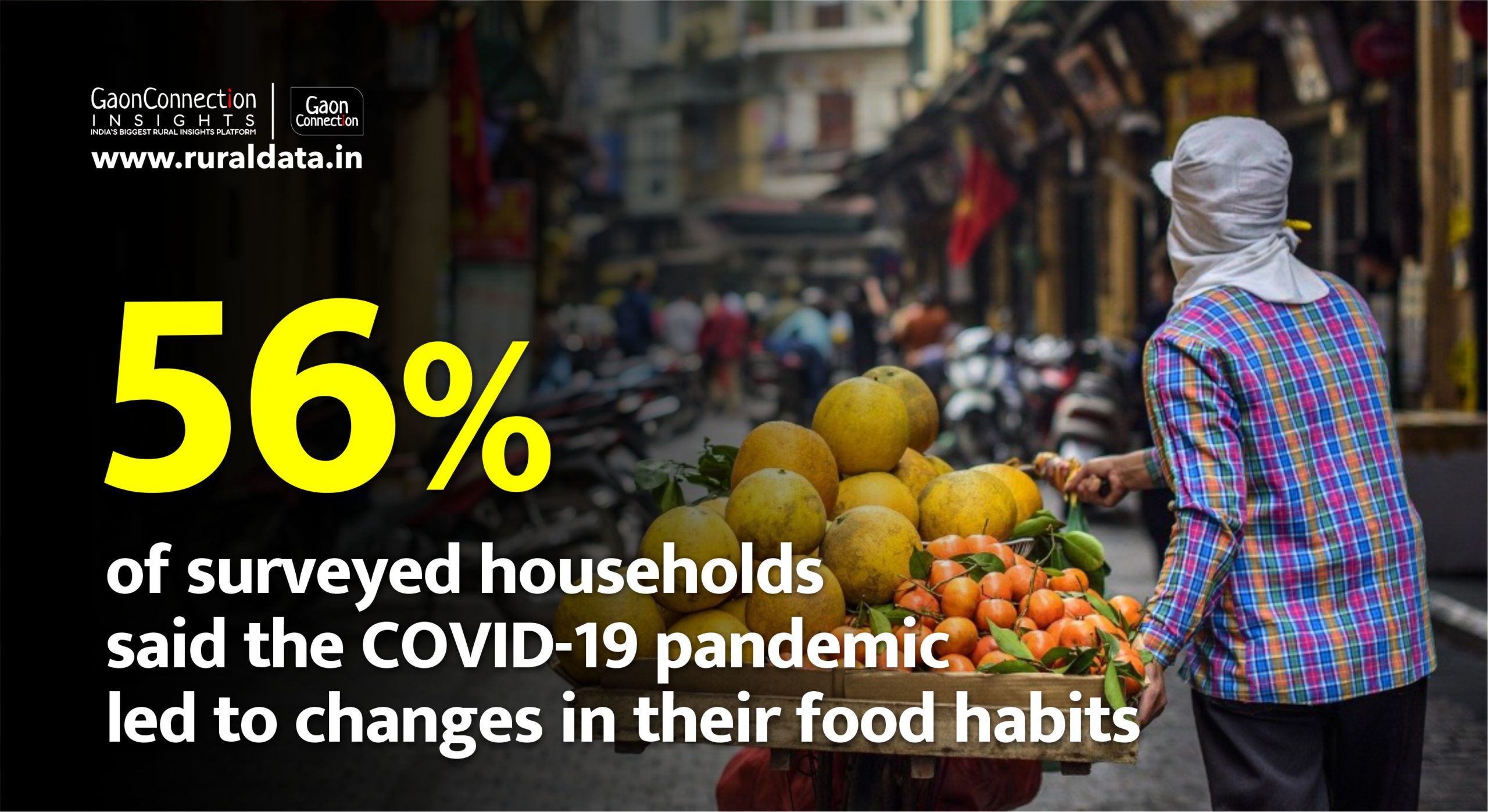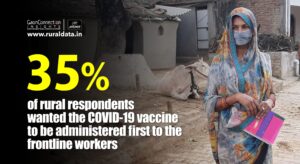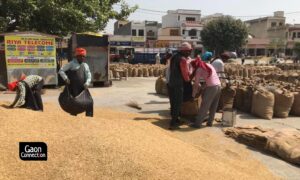A first survey of its kind on the ‘COVID-19 vaccine and Rural India’ by Gaon Connection, India’s biggest rural media platform, revealed how dietary habits of people in rural India changed with the COVID-19 pandemic.
More than half (56 per cent) of the respondents admitted to changing their eating habits because of the pandemic. Seventy per cent of the respondents said they had stopped eating outside, while 30 per cent were eating more fruits and 33 per cent more green vegetables. About 20 per cent of them said they did not get adequate food during the pandemic.
“We have become more conscious of what we are eating,” Kumud Singh of Bhopal, Madhya Pradesh, told Gaon Connection. She said her family that was fond of eating out at least twice or thrice a week had stopped doing that. “The eating habits of children who are now studying from home have also changed considerably,” she said.
The face-to-face survey, conducted between December 1 and December 10, was carried out by Gaon Connection with 6,040 rural respondents across 60 districts in 16 states and one union territory. The selection of states, covering all regions of the country, was based on the prevalence of COVID-19 as per the COVID data of the Union ministry of health and family welfare, Government of India. The survey had a margin of error of 5 per cent and a 95 per cent confidence level.
Associating eating healthy with better immunity has helped bring about a change in diets, Dr Shalini, a nutritionist who runs the Diet and Wellness clinic in Dwarka, New Delhi, told Gaon Connection, “With the COVID-19 outbreak, people are taking great care with their nutrition. They are understanding that better nutrition means better immunity and that is a good thing,” she said.
Food habits in the country are as varied as the geographical lay of the land and the climate. Therefore, Gaon Connection made sure the survey data came from across the country zone/region wise.
The survey revealed that in the eastern and the north-eastern states (Odisha, Assam, West Bengal, Arunachal Pradesh), about 52.3 per cent of the people had stopped eating outside, 19.3 per cent said that they were eating more fruits and 30.6 per cent were digging into more vegetables. Slightly more than one family among every four (29.5 per cent) was unable to find adequate food.
In the western states (Maharashtra, Gujarat and Madhya Pradesh), 81.4 per cent had stopped eating outside, 21.5 per cent were eating more fruits while 21.1 per had increased their intake of vegetables. Nearly five per cent of the people struggled to find enough food.
In the northern states (Uttar Pradesh, Bihar, Jharkhand, Himachal Pradesh, Punjab, Jammu and Kashmir and Haryana) 83.9 per cent of the people abstained from eating out while 34.9 per cent consumed more fruits and 36.6 per cent more vegetables. As many as 20.01 per cent of the respondents said they did not get enough to eat during the pandemic.
In Kerala, Andhra Pradesh and Karnataka in the southern region, 57.4 per cent gave up eating out, 41.6 per cent ate more fruits, 42.3 per cent more vegetables and 15.5 per cent struggled to get enough food.
There were rumours galore about the spread of the corona virus and a lot of it had to do with eating. Many believed that the virus could spread through the consumption of chicken, egg, and meat and fish. The survey attempted to find out how the pandemic affected the food habits of the non-vegetarians.
More than half the non-vegetarian respondent households (53 per cent) said there was no change in their consumption of non-vegetarian food, while 40.03 per cent said they had reduced eating meat. Nearly nine per cent of the respondents said they had given up eating non-vegetarian food altogether, 10 per cent said they were just eating eggs and no fish, meat or poultry while 3.8 percent of people said that while they continued to eat meat, they had given up chicken and egg.
Rumours of how COVID-19 was spread by eating non-vegetarian food made people drop chicken from their diet as early as January-February, gravely affecting the poultry industry. Later on, people had even reduced the fish intake following which the Union ministry of fisheries, animal husbandry and dairying had to issue an advisory that consumption of meat did not lead to spread of COVID-19.
There was a spike in the number of people consuming what they believed to be immunity boosting products, such as Chyawanprash and giloi, concoctions with ashwagandha, ginger, basil, cinnamon, lemongrass, etc. Many took to popping multivitamins as well. The Gaon Connection survey revealed that 49 per cent, or every other person, spent more than usual to buy ‘immunity boosters’.
In Odisha, Assam, West Bengal and Arunachal Pradesh 63 per cent of the people surveyed said they were spending more money on buying and consuming packaged immunity boosting products. In the western states of Maharashtra, Gujarat and Madhya Pradeshit was nearly 50 per cent who spent more money on these products. It was the same in the northern states of Uttar Pradesh, Bihar, Jharkhand, Himachal Pradesh, Punjab, Jammu and Kashmir, Haryana, where nearly 50 per cent spent more money on them. In the south of the country, in Kerala, Andhra Pradesh and Karnataka, 48.8 per cent they had spent more money on products that promised an immunity boost while the rest said they had not.



















